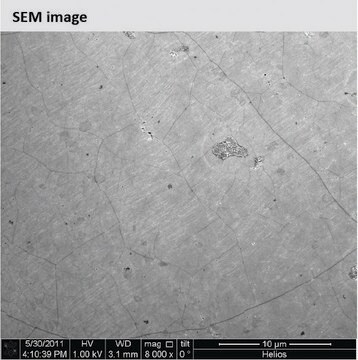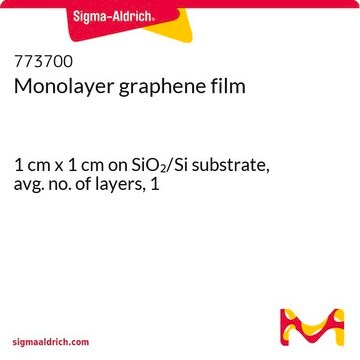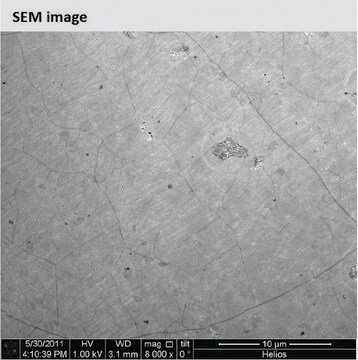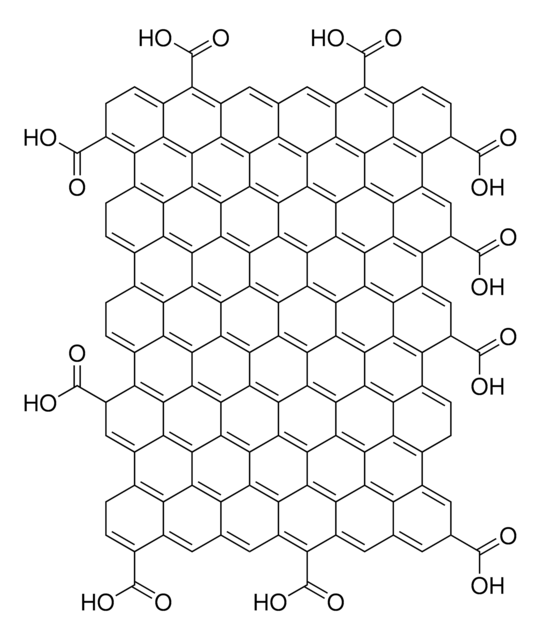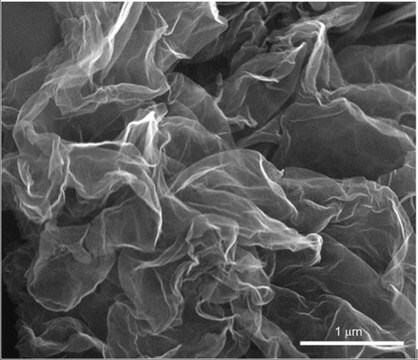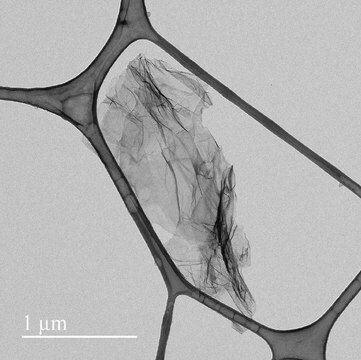799009
Graphene, monolayer film
1 in x 1 in on copper foil, avg. no. of layers, 1
Synonyme(s) :
Graphene/Cu
About This Item
Produits recommandés
Nom du produit
Monolayer graphene film, 1 in x 1 in on copper foil, avg. no. of layers, 1
Niveau de qualité
Description
Coverage: >95%
FET Electron Mobility on Al2O3: 2;000 cm2/V·s
FET Electron Mobility on SiO2/Si (expected): 4; 000 cm2/V·s
Grain size: Up to 10 μm
Number of graphene layers: 1
Transparency: >97%
Forme
film
Caractéristiques
avg. no. of layers 1
Résistance
350 Ω/sq
L × l × épaisseur
1 in. × 1 in. × (theoretical) 0.245 nm, monolayer graphene film
1 in. × 1 in. × 18 μm, copper foil substrate
Couleur
transparent
Vous recherchez des produits similaires ? Visite Guide de comparaison des produits
Description générale
Transfer Method: Clean transfer method
Quality Control: Optical Microscopy & Raman checked
Application
Code de la classe de stockage
11 - Combustible Solids
Classe de danger pour l'eau (WGK)
WGK 3
Point d'éclair (°F)
Not applicable
Point d'éclair (°C)
Not applicable
Faites votre choix parmi les versions les plus récentes :
Déjà en possession de ce produit ?
Retrouvez la documentation relative aux produits que vous avez récemment achetés dans la Bibliothèque de documents.
Les clients ont également consulté
Articles
The detection and quantification of biomarkers are essential for medical diagnostics, environmental monitoring, and bioresearch.
The production of hydrogen by catalytic water splitting is important for a wide range of industries including renewable energy petroleum refining and for the production of methanol and ammonia in the chemical industry.
Advances in scalable synthesis and processing of two-dimensional materials
Notre équipe de scientifiques dispose d'une expérience dans tous les secteurs de la recherche, notamment en sciences de la vie, science des matériaux, synthèse chimique, chromatographie, analyse et dans de nombreux autres domaines..
Contacter notre Service technique
